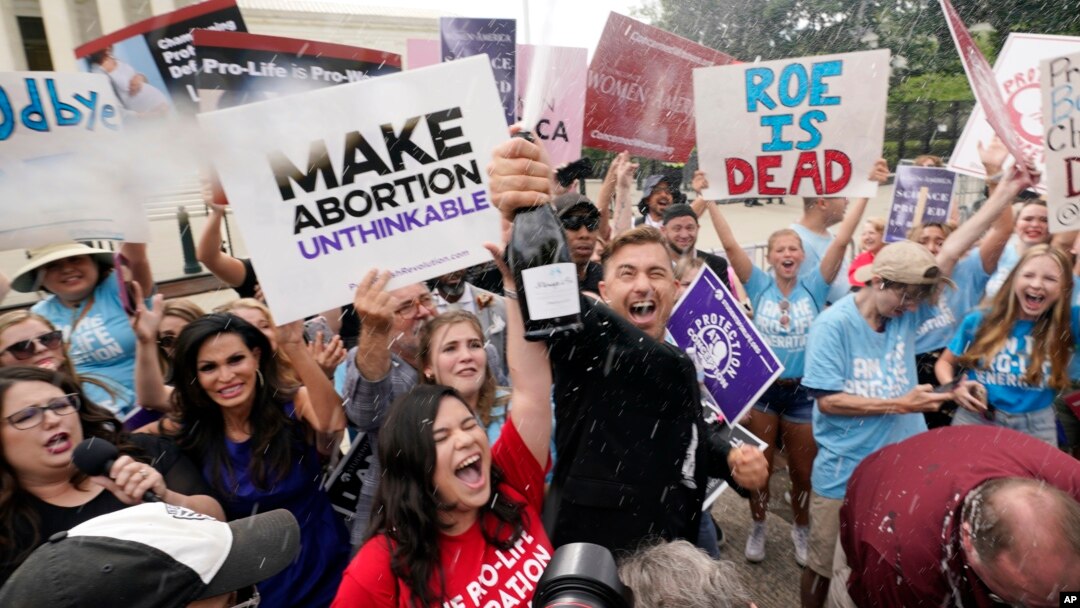WASHINGTON —
In a widely anticipated move, the U.S. Supreme Court cast aside a half-century-old ruling that established a constitutional right to abortion, leaving it to states to decide whether or not to permit the procedure.
Friday’s ruling by the high court’s conservative majority came less than two months after an early draft of the decision was leaked to a news site, setting off nationwide protests by abortion rights activists.
While the high court's overturning of its 1973 ruling in the case known as Roe v. Wade and a separate case called Planned Parenthood v. Casey does not impose a ban on abortion, its legal impact will ripple through the country almost immediately.
The Guttmacher Institute, a pro-choice research group, estimates that 26 states, mostly in the south and midwest, will ban abortion in the wake of Roe v. Wake's repeal. That could force millions of women seeking an abortion to travel to states where abortion rights are protected.
The Supreme Court's ruling came in a closely-watched case involving a Mississippi law that bans nearly all abortions after the 15th week of pregnancy, several weeks before the cutoff stage established under Roe v. Wade.
Jackson Women's Health Organization, the only abortion clinic in Mississippi, challenged the 2018 law in federal court, arguing that it would violate nearly 50 years of Supreme Court precedent.
After two lower courts sided with the clinic, the state of Mississippi, backed by 25 other Republican-controlled states, went to the Supreme Court, asking the justices to overturn both Roe and Casey. Their petition claimed that "nothing" in the constitution "supports a right to abortion."
Six of the high court justices, all appointed by Republican presidents, agreed.
"The Constitution makes no reference to abortion, and no such right is implicitly protected by any constitutional provision, including...the Due Process of the 14th Amendment," conservative Justice Samuel Alito wrote in the majority opinion
The 14th Amendment says that no state can "deprive any person of life, liberty, or property without due process of law."
That provision has been invoked by the Supreme Court in recent decades to affirm rights not explicitly mentioned in the Constitution such as the right to same-sex marriage. But Alito argued that "any such right must be 'deeply rooted in this nation's history and tradition.'"


